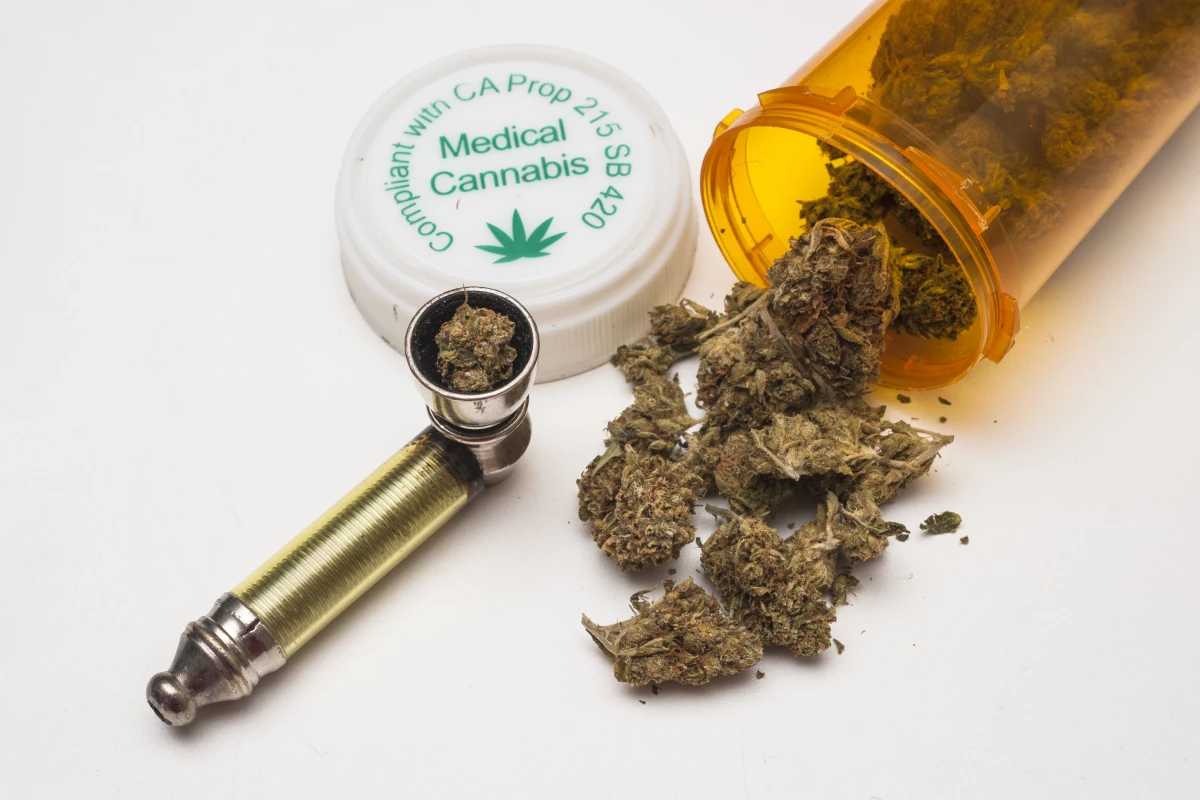Despite long-standing anecdotal reports suggesting cannabis is an effective pain-relieving drug, the medical research community is still somewhat divided on the topic. A variety of studies in recent years have come to dramatically conflicting conclusions. New research from Washington State University is presenting evidence that cannabis can significantly reduce the severity of headaches and migraines. But the question still remains, why are scientists consistently coming up with such discordant results when trying to answer whether cannabis can reduce pain?
The new Washington State research focuses specifically on the effect of smoked cannabis on headache and migraine severity. Over one third of medical cannabis users report using the drug to treat headaches or migraines, however, there has been very little real-time study exploring the efficacy of the treatment. Outside of studies that rely on self-reported use in the past, there has only been one clinical trial, and that was exploring a synthetic cannabinoid’s effect on acute headaches.
“We were motivated to do this study because a substantial number of people say they use cannabis for headache and migraine, but surprisingly few studies had addressed the topic,” says Carrie Cuttler, lead author on the new study.
The novelty of the new research came from its analysis of data gathered by an app called Strainprint. This Canadian app was designed to offer personalized information for patients, enabling real-time tracking of medical symptoms against specific strains of cannabis. This means patients can report the severity of headaches, before and after cannabis use, offering scientists a useful way to follow the efficacy of cannabis as a medical treatment in real-time, and in relation to the varying THC or CBD levels from strain to strain.
“We wanted to approach this in an ecologically valid way, which is to look at actual patients using whole plant cannabis to medicate in their own homes and environments,” explains Cuttler. “These are also very big data, so we can more appropriately and accurately generalize to the greater population of patients using cannabis to manage these conditions.”
The study ultimately evaluated data from nearly 2000 medical cannabis users who reported up to 20,000 individual sessions using cannabis to treat headache or migraine. The results reveal nearly 90 percent of all recorded cannabis sessions reported reductions in headache or migraine severity. On average, the perceived reduction in headache and migraine severity was about 50 percent.
One of the more interesting findings in the study was that individual patients did seem to increase their cannabis use over time, which may indicate continual use can lead to the development of a tolerance to the drug.
Another finding of note is that efficacy of cannabis in treating headache or migraine did not vary according to the specific strain used, or the differences in THC and CBD volumes within specific strains. The researchers suggest this indicates a combination of the hundreds of phytocannabinoids in cannabis may play a role in its medical properties and medical cannabis users need not focus on THC or CBD levels to guide their strain selection.
Of course, the fundamental limitation of the study is one continually faced by medical cannabis researchers, and that is sampling bias. Those that use medical cannabis are most likely already sold on the perceived benefits of the drug. The researchers behind this new study are very aware of this problem and suggest one of the benefits of using data from the Strainprint app is that it was developed to identify which specific strains best treat certain symptoms. This means users are less likely to overestimate beneficial effects for a specific cannabis strain.
“I suspect there are some slight overestimates of effectiveness,” says Cuttler referring to the study’s overall conclusions. “My hope is that this research will motivate researchers to take on the difficult work of conducting placebo-controlled trials. In the meantime, this at least gives medical cannabis patients and their doctors a little more information about what they might expect from using cannabis to manage these conditions.”
Last year, a large Australian study published in the journal The Lancet found no evidence cannabis reduced general pain severity after tracking 1500 subjects for four years. One of the stranger anachronistic elements of the Australian study was the fact that although the adjusted longitudinal analyses of the data found no difference in pain severity between cannabis and non-cannabis users, the self-reporting of individual cannabis users suggested it was indeed effective for their pain.
What this oddly discordant result implies is that cannabis may not exactly work like the analgesic drugs modern medicine is currently accustomed to administering. The Australian researchers suggested the inconsistency in their results could be due to cannabis' effects on other lifestyle aspects, such as improving sleep, which subsequently improves well being.
The general idea that has been proposed is that cannabis doesn’t directly suppress or change the sensation of pain but instead improves aspects related to a person’s general well-being, allowing for pain to be better tolerated. This hypothesis would somewhat explain the inconsistent results of many studies trying to home in on the acutes pain-relieving effects of the drug.
Back in 2012 a team of researchers from the University of Oxford conducted a brain imaging study to investigate how THC influences a person’s brain when faced with an acute burning sensation. The participants reported the same pain severity scores, both with a THC dose and with a placebo.
But, when asked how much the pain bothered them, a significant difference in effect appeared. It seemed although the sensation of pain was similar with and without THC, when a subject was influenced by THC they simply cared less about the pain.
Even more fascinating was the fact the brain imaging data objectively back up these subjective reports. The research discovered the participants caring the least about the pain sensation displayed reduced activity in the anterior mid-cingulate cortex, an area of the brain previously implicated in regulating our emotional response to pain.
“Cannabis does not seem to act like a conventional pain medicine,” said Michael Lee in 2012, lead researcher on the Oxford study. “Some people respond really well, others not at all, or even poorly. Brain imaging shows little reduction in the brain regions that code for the sensation of pain, which is what we tend to see with drugs like opiates. Instead cannabis appears to mainly affect the emotional reaction to pain in a highly variable way.”
All this ultimately means is that our current tools for measuring subjective pain and evaluating the efficacy of analgesics may be profoundly limited. The extreme variability across cannabis pain research suggests the drug may confer highly specific pain-relieving effects, and subsequently be useful for some, but not all, types of chronic pain.
The new study was published in The Journal of Pain.
Source: Washington State University




